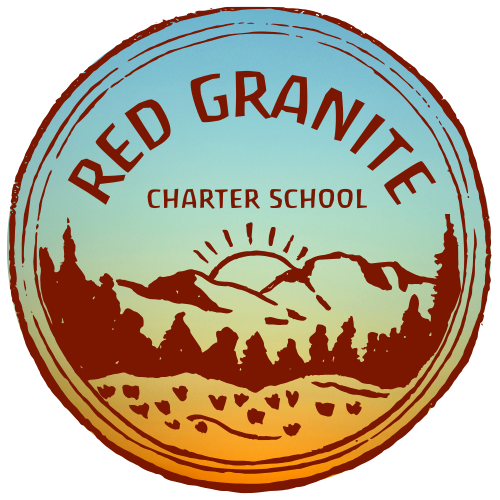Early Childhood
Pre-kindergarten and Kindergarten
At Red Granite, we believe that early childhood (birth to age seven) is a unique period of life that deserves respect, guidance, nurture, and time. We believe that children have not only a physical but also an individual and spiritual nature. Meaningful work and creative play in a structured environment are the pillars upon which a healthy life can be built. Of utmost importance is the development of social skills, which serve the children in one day realizing their potential in relation to others.
Our sister school, Tomorrow River Community Charter Schools, guides us. Their Early Childhood Curriculum, which they generously shared with us, is included here. In addition, their tenured faculty are mentoring the new Public Waldorf Education staff at Red Granite. We are greatly appreciative of their expertise and guidance as we start this new school.
The goal of the prekindergarten and kindergarten is to integrate young children into their individual physical body, the social body of the classroom, and life as a whole. Thus, the children’s education takes place primarily through an active participation in the “Living Arts.” These include:
benefiting from the nurturing arts, such as well-structured and consistent daily, weekly, and yearly routines, healthy nourishment, daily rests, and clearly-held boundaries
imitating and partaking in meaningful, purposeful, practical work, such as cooking, woodworking, cleaning, and gardening
exploring the creative arts, such as imaginative play, watercolor painting, puppetry, handwork, and storytelling
developing social/ relational skills– learning to share with, wait for, ask, thank, help and work with others in a mixed-age environment
experiencing daily, extended time in nature, the seasonal cycles, the earth and the elements first-hand
In our classrooms, a multi-sensory, experiential foundation is laid for the abstract learning to come in grade school and beyond. Keys to our approach for children ages 4-6:
Young children have a natural awe and reverence for the world and the adults who care for and teach them; thus, children readily imitate what they experience in their environment. Consequently, the teacher embodies and demonstrates the behaviors, knowledge, attitudes, and habits for the children to learn and acquire through imitation.
Young children develop a sense of security and confidence in the world that leads to clear thinking and emotional stability later through consistent relationships with their primary adult caregivers and teachers and through rhythm in their daily, weekly and yearly life.
Young children’s bodies are in an intense process of forming inner organs, growing bones and brain tissue, and developing physical gross and fine motor coordination, which should be honored and actively supported. Consequently, young children will ideally be purposefully given a significant amount time for free play that encourages a variety of physical activities, imitative make-believe play acting, and imaginative and social problem solving.
Young children do not have the filters adults do with regard to their sensory experiences; they are like sponges absorbing everything in their environment. Consequently, the classroom environment is rich with healthy sensory experiences incorporating natural materials, texture, warmth, and the fragrances of cooking and baking. In addition, outdoor time in nature immerses children in the sights, sounds, colors, smells, and tactile experiences of the ever-changing seasons.
Unlike the grades, the kindergarten does not teach in main lesson subjects. There are 3-6 week seasonally-oriented themes that infuse the content of each day, but literacy and language arts, mathematics, science, social skills, social studies, music and the arts are integrated into each theme.
THEMES
Weekly Rhythm – Example
Monday – Painting, crayon drawing, beeswax or clay modeling
Tuesday – Baking
Wednesday – Craft or practical project
Thursday – Craft or practical project
Friday – Cooking
Seasonal Themes – Example
September – Autumn—courage, knights & dragons, apples
October – Autumn—colors, fading & blossoming, squash
November – Autumn—harvest, abundance & gratitude, native Americans, corn
December – Winter—light in darkness, giving & receiving, wood/trees
January – Winter—warmth in coldness, hard work & play, wool
February – Winter—fire and ice, transformation & change, family & teamwork, beeswax
March – Spring—Mother Goose, silliness & seriousness, maple syrup
April – Spring—rebirth, waking up, life processes of plants, planting seeds, eggs
May – Spring—celebration of growth, flowers, dancing
June – Summer—caterpillars & butterflies, circus arts
Sample Schedules
Pre-K/Kindergarten
8:30-9:00am- Circle Time
9:00-9:30am- Morning Snack
9:30-10:00am- Guided Activity
10:00-10:45am- Outdoor Exploration
10:45-11:20am- Lunch
11:20-12:20am- Heggerty (Phonics)
12:20-1:00pm- Independent Exploration (Play)
1:00-1:15pm- Story
1:15-2:00pm- Rest
2:00-2:30pm- Afternoon Snack
2:30-2:45pm- Chores/Housekeeping
2:45-3:15pm- Outdoor Time, Goodbye Circle, Dismissal

